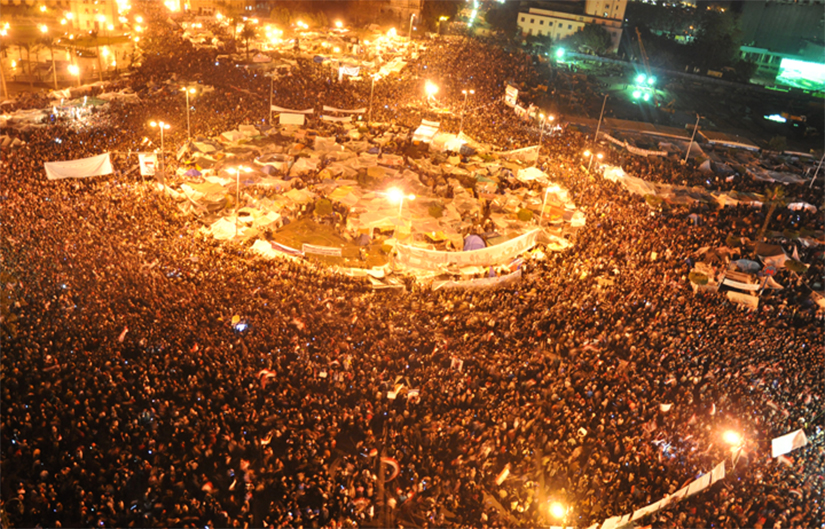
|

Introduction to government and politics Read Online
17.1 Power and authority Read Online
17.2 Forms of government Read Online
17.3 Politics in the united states Read Online
17.4 Theoretical perspectives on government and power Read Online

Hosni Mubarak had been the President of Egypt for nearly thirty years when massive public uprisings caused him to step down in 2011. Gaining the presidency in 1981 when President Anwar Sadat was assassinated, Mubarak had maintained his regime through a series of “monopoly” elections in which he was the only candidate. Popular unrest first drew significant notice in 2004, and by early 2011 thousands of Egyptians had begun protesting political oppression through demonstrations in the streets of several Egyptian cities, including the capital city of Cairo. There was sporadic violence between demonstrators and the military, but eventually Mubarak resigned and left the country. Within a year, a free, multicandidate election was held in Egypt.
The "Arab Spring" refers to a series of uprisings in various countries throughout the Middle East, including Algeria, Bahrain, Egypt, Iran, Jordan, Kuwait, Libya, Morocco, Oman, Syria, Tunisia, Qatar, and Yemen. The extent of protest has varied widely among these countries, as have the outcomes, but all were based on popular uprisings of the people, who were dissatisfied with their respective government leaders but were unable to create change by less extreme methods. In countries such as Tunisia and Egypt, revolution did involve some violence, but relatively less than in other Middle Eastern countries. In Libya, the repressive regime of Muammar Gaddafi was brought to an end after forty-two years. The number of causalities reported differs depending on the source; the exact number is still unknown, but it is estimated to be in the thousands.
The National. 2011. “The Arab Spring Country by County” The National , June 17. Retrieved October 1, 2014 ( (External Link) )
World Health Organization. 2012. “Libya Crisis; August 2011 Update” Retrieved October 1, 2014 ( (External Link) )
| Start Quiz | Download PDF | |
| Start Quiz | Download PDF | |
| Start Quiz | Download PDF |
Question: When did the first economies begin to develop?
Choices:
When all of the hunter-gatherers died
When money was invented
When people began to grow crops and domesticate animals
When the first cities were built
Question: In which sector of an economy would someone working as a software developer be?
Choices:
Primary
Secondary
Tertiary
Quaternary
Question: Who was the leading theorist on the development of socialism?
Choices:
Karl Marx
Alex Inkeles
Emile Durkheim
Adam Smith
Question: The type of socialism now carried on by Russia is a form of ______ socialism.
Choices:
centrally planned
market
utopian
zero-sum
Question: Ben lost his job when GM closed U.S. factories and opened factories in Mexico. Now, Ben is very anti-immigration and campaigns for large-scale deportation of Mexican nationals, even though, logically, their presence does not harm him and their absence will not restore his job. Ben might be experiencing _____________.
Choices:
xenophobia
global commodity chains
xenophilia
global assembly line
Question: Which of the following is not an aspect of globalization?
Choices:
Integrating governments through international trade
Integrating cultures through international trade
Integrating finance through international trade
Integrating child care through international trade
Question: Which country serves as an example of convergence?
Choices:
Singapore
North Korea
England
Canada
Question: Which is an economic policy based on national policies of accumulating silver and gold by controlling markets with colonies and other countries through taxes and customs charges?
Choices:
Capitalism
Communism
Mercantilism
Mutualism
Question: What is the most important commodity in a postindustrial society?
Choices:
Electricity
Money
Information
Computers
Question: Which of these is an example of a commodity?
Choices:
Cooking
Corn
Teaching
Writing
Question: Among the reasons socialism never developed into a political movement in the United States was that trade unions _________.
Choices:
secured workers' rights
guaranteed health care
broke up monopolies
diversified the workforce